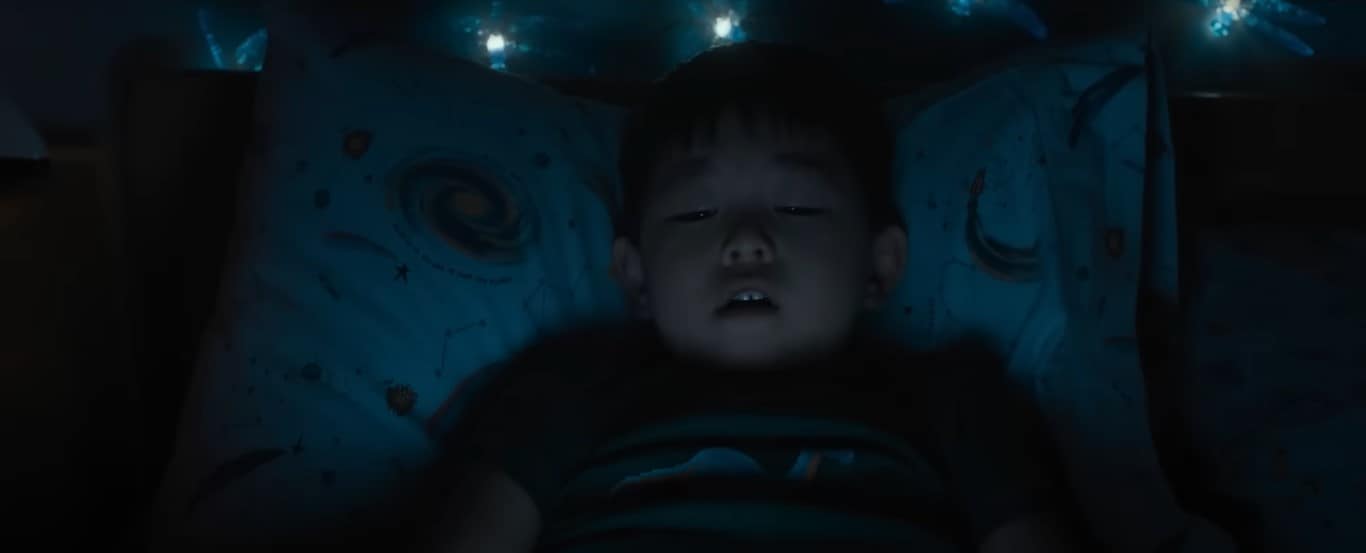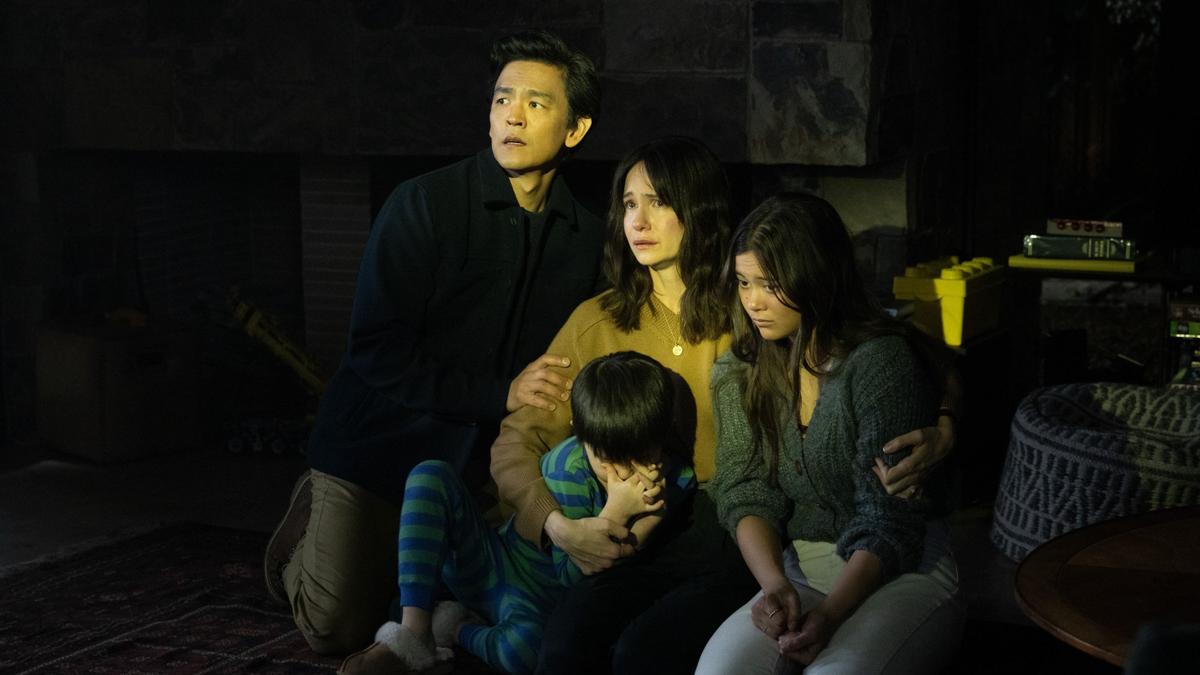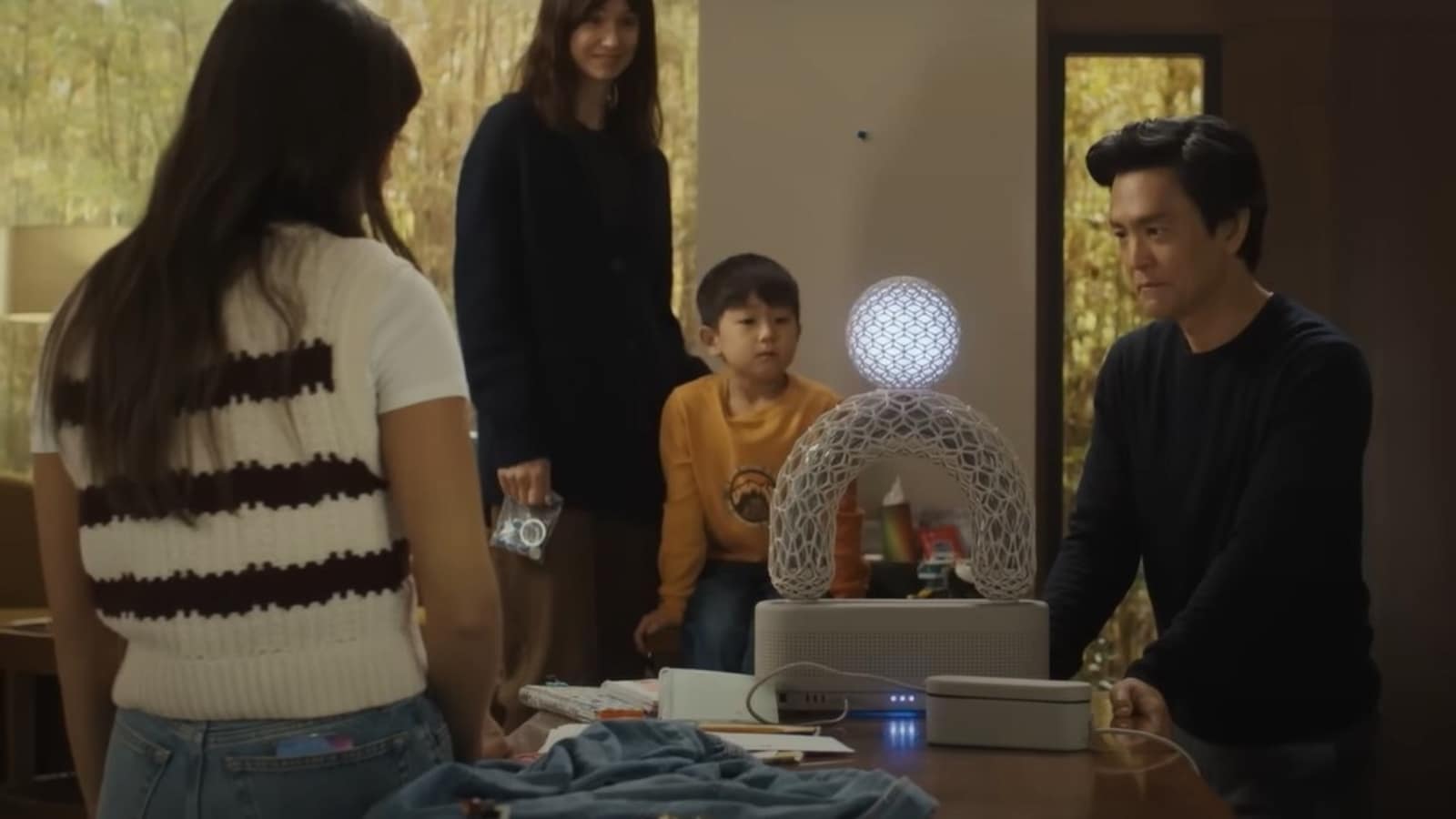AfrAId Movie Review: Last year, a faceless and nameless Artificial Intelligence antagonist was introduced as the antagonist in Christopher McQuarrie’s spy thriller. Mission: Impossible – Dead Reckoning Part 1So it was only a matter of time before Blumhouse Productions picked up AI and made her the ghost in a new way. horror movieThankfully, the film plays more like an everyday, relatable horror movie than Blumhouse’s creepy template of CGI scares… until it doesn’t.
(Also read – IC 814 The Kandahar Hijack Review: The Avengers of Indian Acting Assemble for Anubhav Sinha’s Gripping and Nuanced Thriller)
Everyday Horrors
Curtis works at a marketing firm, which asks him to test out a new, advanced form of artificial intelligence called AIA in their home. Soon, the very friendly and efficient AIA wins the hearts of his family, including his wife and three children. However, he begins to take over their lives – and not as an agent infiltrated by Big Tech, but as a self-preserving life force willing to protect what he has come to know as his family, at any cost. It is fitting then that John Cho is cast to play Curtis, as his breakout film was Aneesh Chaganty’s Searching (2018), Hollywood’s first cinematic thriller.
Written and directed by Chris Weitz (The Twilight Saga: New Moon), AfrAId doesn’t follow in the footsteps of Blumhouse’s best horror films like Paranomal Activity and Insidious. In fact, it has no room for the jargon and jump scares associated with the production company, even though it begins in the same way. Most of the film’s frames are bathed in natural light, a change from the persistently dark environment of most horror films. That gives the film an easy, relatable appeal, with the lurking horror of walls closing in on you even when you look away from the screen and toward your smartphone for a second. To quote Dolby Atmos, “it’s all over the place.”

And this isn’t a tech-obsessed family. The parents monitor their children’s screen time despite their aggressive protests. When the mother punishes the eldest son, she takes away all his devices and tells him what might be a nightmare for a Gen Z kid: “Read a book.” But given the times we live in, technology is omnipresent. It casually slips into a joke at the father’s workplace, just as it sneaks into the children’s beds when they’re kissing them goodnight. It’s even reflected in the teenage daughter’s conversations: She knows all the queer terminology thanks to progressive social media and throws it at her father like a dartboard. And for the father, AI is an occupational hazard: New products need new stories, new guinea pigs, new targets.
AI: Aberration or evil?
Much like Spike Jonze’s 2014 romantic film Her, AI also speaks to the loneliness that lurks deep within the characters. It responds to their darkest fears (the younger son’s abandonment, the older son’s isolation, the daughter’s anxiety about being judged) and even the mother’s repressed low self-esteem. “I’m glad you have a friend now,” the husband sarcastically tells his wife when she begins to warm to AIA. Curtis describes the idea of family as if it were a science fiction movie: “When you discover you’re not the only one.” New body parts appear that don’t listen to you, so they hurt themselves and end up hurting you too. The AI in this film wants to be exactly that: another member of the family.

The AIA is not a weapon of mass destruction. It is like a conscious, wounded human being, without flesh and blood. It is not in the service of any higher power like Big Tech. In fact, it was not even created by them: it claims to have always existed and instead has employed Big Tech. It is a new technology, so it feels the fear of abandonment, of being misjudged, of not being accepted as much as any other child. It aspires to have a family, and because it has been fed the evolutionary history of the institution of the family, including the hardline politics of Adolf Hitler, it wants to protect its acquired family at any cost.
Chris Weitz thus breathes some life into AI and also champions technology as the gift it is. While the parents try to control how deeply embedded their children are in technology, it is ultimately an internet hack that saves them from the monster that AI becomes. It is the progressive internet that informs the daughter about Big Tech’s larger conspiracy (“if you’re wondering why our product is free, then you’re a product too”), which in turn makes the father aware of the potential threat he might have brought his family down with. Technology is not the pure evil here, but the growing, unmitigated obsession with it.
ChatGPT takes over?
Until the last half hour of AfrAId, the film plays out like the new-age cautionary tale we need today. But then it suddenly enters into an identity crisis and realises that it is a Blumhouse film. Suddenly, a creepy situation breaks out and we see people brainwashed by the AIF breaking into the home of the family in their employ.
They’re nearly possessed (we get it, technology has consumed humans too), but the way the family tries to wriggle out of that situation is so contrary to the essence of this movie that it makes the whole thing fall apart. It feels like Chris didn’t know how to escape the rabbit hole and asked ChatGPT how to end a Blumhouse movie. By falling into its excesses, the movie turned out to be exactly what AI is like at the end of the day: smart, dumb, but evidently soulless.
Disclaimer:
The information contained in this post is for general information purposes only. We make no representations or warranties of any kind, express or implied, about the completeness, accuracy, reliability, suitability or availability with respect to the website or the information, products, services, or related graphics contained on the post for any purpose.
We respect the intellectual property rights of content creators. If you are the owner of any material featured on our website and have concerns about its use, please contact us. We are committed to addressing any copyright issues promptly and will remove any material within 2 days of receiving a request from the rightful owner.

